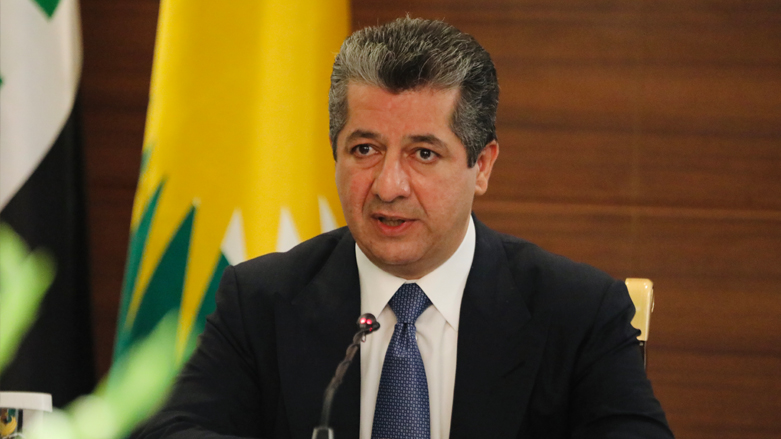PM Barzani discusses freedom of press with Kurdish journalists

ERBIL (Kurdistan 24) – Prime Minister Masrour Barzani held a candid discussion about freedom of the press with journalists from numerous media establishments in the Kurdistan Region on Monday.
Barzani and the Kurdish journalists spent over three hours discussing a wide range of topics related to corruption, freedom of the press and speech, the reform process, Erbil-Baghdad relations, and relations between the media and the Kurdistan Regional Government (KRG).
Freedom of press, Kurdish media landscape
“Journalism is a sacred mission,” Prime Minister Barzani told the journalists at the beginning of their lengthy discussion, adding that he is a firm believer in free expression and press freedom in the Kurdistan Region.
Later in the discussion, Barzani opened the floor for journalists to ask questions and share their views on the state of affairs in the Kurdistan Region.
One issue repeatedly raised by multiple journalists was restrictions on press freedom. They said that the freedom of the press is “receding,” with people even facing jail time for “writing a comment”.
Harassment of journalists or their family members was also mentioned by a member of the press, who said his wife had been one of the victims.
Prime Minister Barzani asked Rahman Gharib of the Metro Center, a journalist’s rights and advocacy group, to provide him with a few names of journalists who were detained for expressing their views on social media.
“I currently do not have information on that,” Gharib responded.
Barzani explained that there is a distinction between a journalist doing their job and defamation, stressing that the latter cannot be tolerated as people’s reputations and rights are at stake.
Barzani said, “one person’s freedom ends when another’s begins,” and stressed that a person’s right to free expression does not permit them to defame others.
The prime minister also noted that freedom of the press in the Kurdistan Region is much better compared to Iraqi provinces or neighboring countries, where the media has been restricted and suppressed.

He defended the digital media bill that would have reduced issues relating to the defamation and intimidation of journalists if it had not been for the fierce opposition of political parties, who cited freedom of expression concerns, to the draft law.
The prime minister denied that he owns any “unofficial media” or has attacked anyone personally through such platforms, as one journalist alleged in the discussion.
Heshu Ahmed, a journalist from Kurdsat News, raised the issue of increasing violence against women in the Kurdistan Region, saying little has been done on the government’s side to stop this trend.
Barzani said his government has been firm on combating violence against the Kurdistan Region’s citizens regardless of gender by confiscating unlicensed weapons, arresting perpetrators, and preventing crimes before they are committed.
The failure of Kurdish media workers and journalists to avoid being pro-government or pro-opposition is a serious issue that characterizes the Kurdistan Region’s media landscape, said Kurdistan 24 General Manager Ahmed Zawiti.
“Kurdish media is devoid of the sense of patriotism,” Zawiti added.

KRG Reforms
The KRG’s ongoing reform process was also discussed, with some journalists expressing discontent with its progress.
Mohammad of Rauf of Draw Media complained that no corrupt officials have faced arrest.
Barzani responded by saying his cabinet’s fight against corruption is about reforming the system to make it resilient against corrupt practices rather than focusing on putting corrupt officials on trial.

If the system is not reformed, it would be prone to such malign practices, he argued, adding that his reform program will take time to bear results.
As part of the financial and energy reforms, Barzani shared data on his government’s efforts to reduce expenditures, boost revenues and provide basic service provisions.
Public discontent
Another issue discussed was public discontent in the Kurdistan Region with the government and political process. A number of the attending journalists acknowledged the “negative atmosphere” in the media regarding people’s grievances over the day-to-day issues they face regarding the delivery of basic services.
While acknowledging the issues the Kurdistan Region faces, Barzani charged that some of the media organizations had played a role in making people “disappointed” not only with the government but the Kurdistan Region itself, which negatively affected their sense of patriotism toward their homeland.
He explained how biased and unbalanced reporting contributes to the discontent and urged the journalists to do their work responsibly since unprofessional practices could undermine people’s sense of attachment to the Kurdistan Region.
“Loving the homeland should not be equated with endorsing the government,” he said.
